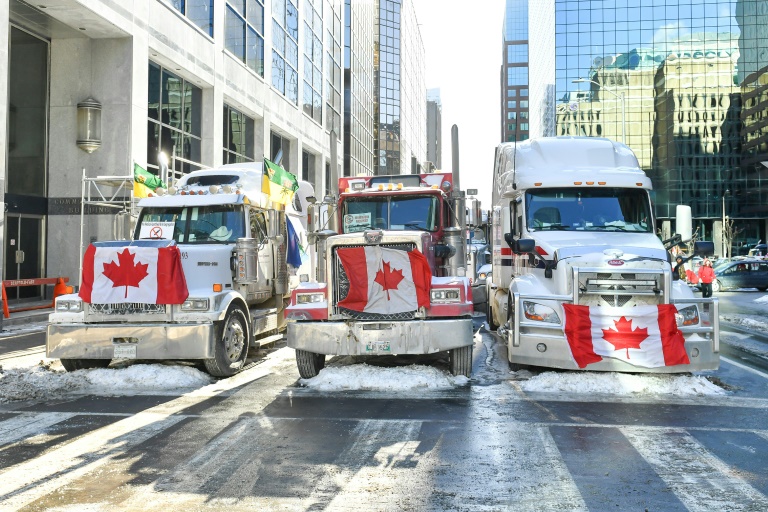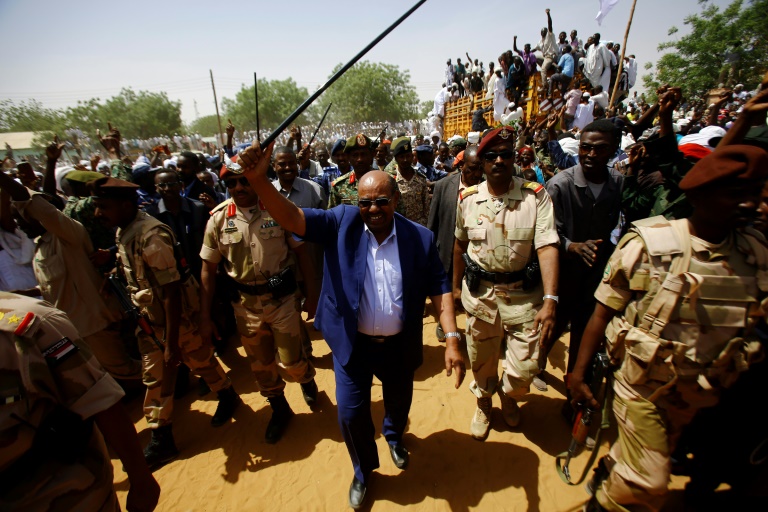The trial of two leaders of trucker protests that brought Canada’s capital to a standstill and disrupted trade last year — inspiring similar demonstrations around the world — opened on Tuesday.
The self-styled “Freedom Convoy” rolled into Ottawa in early 2022 from across Canada to express anger at Covid vaccine mandates.
After three weeks of turmoil, Prime Minister Justin Trudeau invoked rarely used emergency powers to dislodge the protesters, which political opponents and civil liberties groups criticized as overreach.
Convoy organizers Tamara Lich and Chris Barber now face charges of mischief, obstructing police, counseling others to commit mischief and intimidation of parliament.
“The central issue,” lawyers for both said in a statement, “will be whether the actions of two of the organizers of a peaceful protest should warrant criminal sanction.”
Many facts of the case are not in dispute as Lich and Barber documented the protest in online posts. Lich also published a book in April about her experience in Ottawa.
In court, defense attorney Lawrence Greenspon argued that the protest was not an “occupation,” as it was widely described.
It is “an insult to anyone who’s survived an occupation to be called what happened in Ottawa an occupation,” he told reporters, pointing to Russia’s invasion of Ukraine.
Prosecutors said they will call almost two dozen witnesses during the 16-day trial including police and city officials.
They will also present evidence that Lich and Barber fueled unrest in Ottawa, and ignored orders to leave even after the federal government invoked the Emergencies Act.
Many residents of Ottawa complained about incessant honking noise and harassment during the protest.
If convicted, Lich and Barber face up to 10 years in prison.
Danny Bulford, a former police officer who quit the prime minister’s security detail over Covid-19 vaccine mandates and joined the protest, told public broadcaster CBC a guilty verdict would lead to deeper mistrust of the legal system from people who “already feel disenfranchised.”
Ottawa’s former police chief Peter Sloly had described the scene during the protest as a “tinder box waiting to explode.”
Organizers and participants, however, painted a different picture, calling their actions legitimate pushback against “evil” government policies and describing a festive atmosphere in front of parliament, with hot tubs, bouncy castles and barbecues.
As solidarity rallies popped up — blocking trade corridors including a bridge to Detroit that is the busiest international crossing in North America — their demands expanded to a broader rejection of pandemic restrictions and an anti-establishment agenda.
Nearly 200 people were arrested when police eventually moved in to clear the Ottawa protesters and their big rigs.
A public inquiry in February found the government was justified in invoking the Emergencies Act as circumstances had risked becoming “dangerous and unmanageable.”







